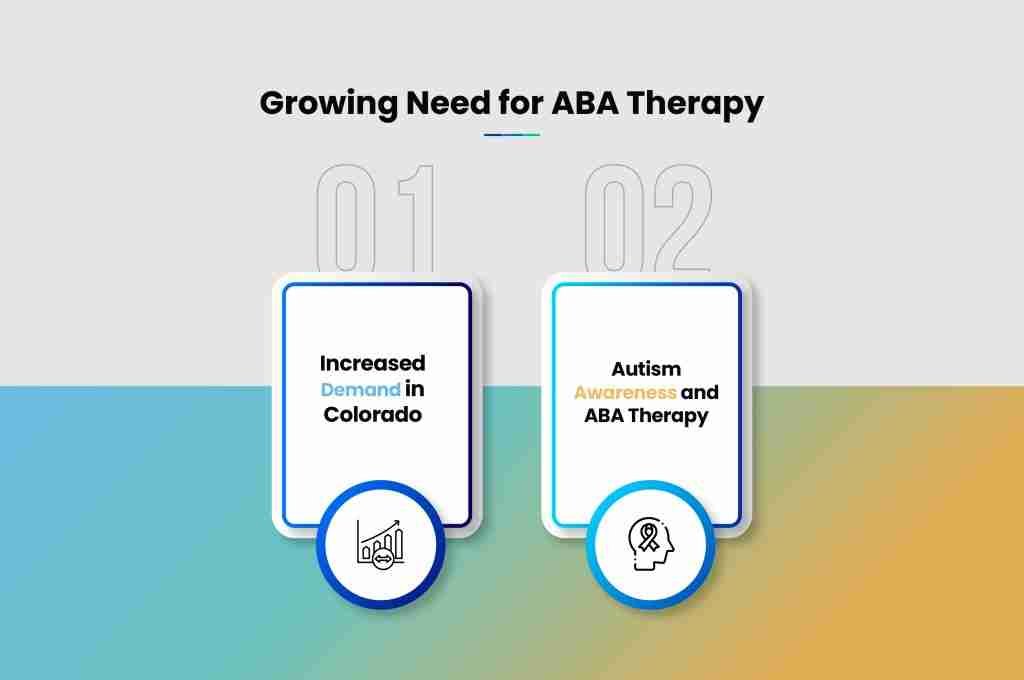Unlocking Potential: ABA Therapy Jobs in Colorado Unraveled
ABA TherapyJuly 17, 2025

ABA Therapy in Colorado
As I dig into the world of ABA therapy in Colorado, it’s important to wrap my head around Applied Behavior Analysis (ABA) therapy and what it means for the Colorado community.
Understanding ABA Therapy
ABA therapy is a well-known and research-backed approach that helps tweak behavior in a positive way. It’s a game-changer for folks with autism spectrum disorder (ASD), offering structured support to boost social skills, communication, and daily tasks.
By diving into behaviors, figuring out what sets them off and the ripple effects they cause, ABA therapists create plans to encourage good habits and reduce tricky ones. They lean on data, focusing on particular behaviors, watching progress, and switching up strategies when needed to make real changes in people’s lives.
Importance of ABA Therapy in Colorado
In Colorado, the importance of ABA therapy isn’t lost on anyone, especially as autism treatment grows and more people start realizing its benefits. Currently, Colorado doesn't require specific licenses for ABA practitioners, beyond the boundaries of psychology (AppliedBehaviorAnalysisEdu.org).
The 2017 update to the Colorado Mental Health Practice Act demands those doing ABA stuff have a psychology license, which underlines the need to follow specific rules to practice ABA in Colorado. This rulebook helps make sure that only the right folks deliver ABA services statewide.
Also, in 2015, Colorado shook things up with the autism insurance coverage expansion bill (SB15-015), ditching dollar and visit limits tied to autism-related health costs. That move cranked up the demand for healthcare heroes, including ABA therapists, in Colorado.
The autism rates in Colorado aren’t just numbers on a page. A 2012 monitoring project highlighted that one out of every 92 eight-year-olds in the Denver area had autism. This snapshot screams for more ABA therapy to lift up folks on the autism spectrum and their kin across the state.
To wrap it up, ABA therapy is making serious waves in Colorado’s healthcare scene. It’s a must-have for those wrestling with autism, stressing the need for constant advocacy, awareness, and top-notch treatment across the board.
ABA Therapy Certification
If you're itching to jump into an ABA therapy career right here in Colorado, grabbing that necessary certification is your first move. Let's gab about the University of Colorado Denver's program for nailing ABA therapy certification, covering the essentials and how to sign up.
University of Colorado Denver Program
The University of Colorado Denver runs this snazzy Applied Behavior Analysis Graduate Certificate gig. It's tailor-made for turning professionals into real hotshots in ABA therapy, fit for all sorts of environments. This program is a fantastic shot for anyone wanting a leg up in the ABA therapy world.
Requirements and Application Process
To get your foot in the door at the University of Colorado Denver's ABA certification program, there are a few hoops to jump through. You need a graduate degree (master’s level minimum) from an accredited school. Then buckle down for a seven-course spree with 3-credit hour classes, all online. These courses are led by seasoned Board Certified Behavior Analyst (BCBA) instructors who know their onions (University of Colorado Denver).
This program gets that life is busy, so it’s all laid out on user-friendly platforms like Instructure Canvas. Heads up, though: No financial aid here, and you’ll find all the tuition details in the Student Finances hub on the university’s site.
When you're thinking of hopping on board, keep those application dates in mind. The University of Colorado Denver does rolling admissions—get those completed forms in by April 1 for the Summer 2025 batch or by November 1 for Spring 2026. They check those applications as they come in, so no snoozing.
Once you ace the requirements and the application dos and don'ts, you’ll be prepped for ABA therapy gigs all over Colorado. This certification is your ticket to stepping up and making a difference in the lives of people with autism and other developmental bumps, feeding into the ever-growing call for ABA therapy across the state.
Licensing and Regulation
If you're diving into the world of applied behavior analysis (ABA) in Colorado, it's crucial to get a handle on the ins and outs of the laws and rules that call the shots. Right now, you won't find specific licenses for behavior analysts doing their thing with ABA in Colorado. According to AppliedBehaviorAnalysisEdu.org, if you're an ABA therapist in Colorado, you're considered part of the broader psychology gig in the state.
Colorado Laws for Behavior Analysts
For those rolling up their sleeves in the ABA field in Colorado, you might need to snag a psychologist license from the Colorado Department of Regulatory Agencies (DORA), State Board of Psychologist Examiners, and that's if the rules are read with a fine-toothed comb (AppliedBehaviorAnalysisEdu.org). There's no special license for behavior analysts, but needing that psychology license highlights the hoops you'll jump through to legally practice ABA here.
Impact of Legislation on ABA Therapy
Back in 2017, the Colorado Mental Health Practice Act got a refresh, putting more emphasis on holding a psychology license for those on the ABA scene. This legislative nudge aims to make sure there's accountability and quality when dealing with ABA therapy in the state.
Colorado's still finding its way with no dedicated board for behavior analysts, but you can see their commitment in projects like the CDC's Study to Explore Early Development. Here, the goal is to dig into what makes autism tick and raise the bar on awareness for health hiccups among kids on the spectrum. Through this mix of research and legislation, Colorado's setting the stage for a big-hearted approach to autism support.
Grasping the rules and keeping an eye on legislative changes is golden for practitioners, parents, and teachers in Colorado. Being in the know means stepping forward in the ABA field with a sound peace of mind. For a deeper dive into ABA therapy specifics here, check out our resources on aba therapy publications in colorado and aba therapy research in colorado.
Growing Need for ABA Therapy

With autism becoming more understood and recognized, there's a serious uptick in the need for ABA therapy around Colorado. More kiddos are getting diagnosed with autism, and changes in state laws mean insurance is getting better at covering treatment costs. That's a win for families looking for support.
Increased Demand in Colorado
Colorado's been busy making progress in autism research and interventions. The state joined in on the CDC's cool Study to Explore Early Development, which zeroed in on how catching autism early can really change lives for the better. Plus, it shone a light on how ABA therapy stands out as a go-to support.
The numbers speak volumes. A Colorado project found that one in 92 eight-year-olds in Denver were diagnosed with ASD back in 2012 (AppliedBehaviorAnalysisEdu). These stats point to the pressing need for strategies like ABA therapy to help people with autism thrive.
Autism Awareness and ABA Therapy
Colorado's been on a roll with legislation. Senate Bill 09-244 (2009) and SB15-015 (2015) changed the game by improving insurance coverage for autism treatments. That means more folks can access ABA therapy without stressing over costs.
The bump in autism awareness and ABA therapy’s track record of success are key reasons why there's such a demand for skilled ABA professionals. Parents and educators across the state are actively seeking out these services to give kids the personalized help they need.
To keep up with this rising demand, new professionals are jumping into ABA therapy certification programs like the one at the University of Colorado Denver. This program arms you with the smarts and skills to offer interventions that really make a difference for those with autism.
In a nutshell, more awareness, smart legislation, and solid research underline why ABA therapy is vital in Colorado. The pros in this field are superstars, making sure kids with autism get every chance to shine bright.
